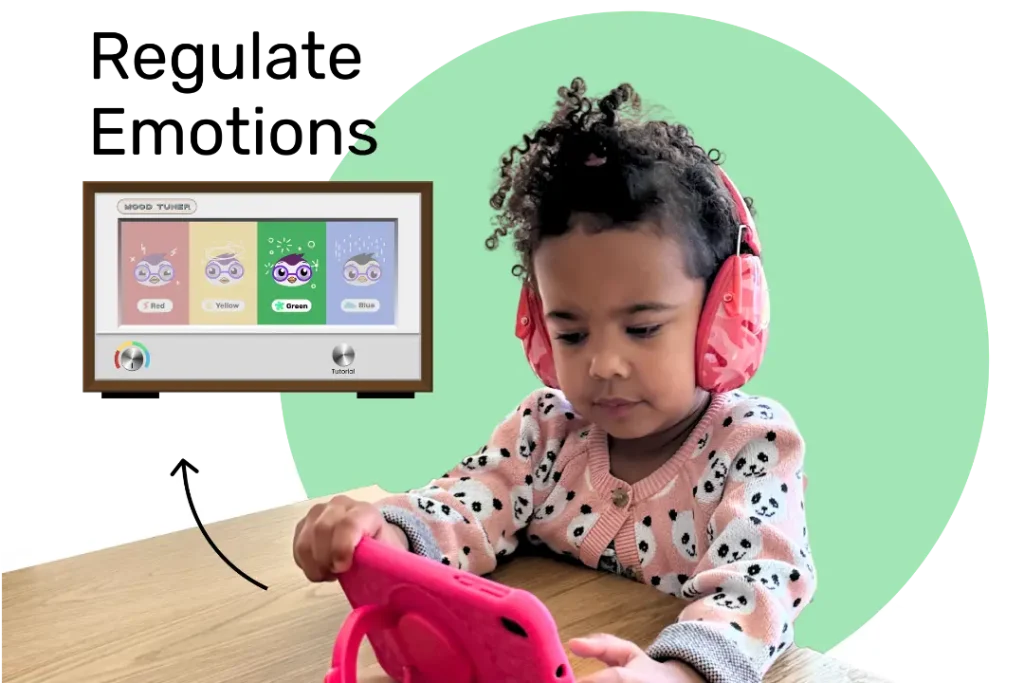In my experience working with children, I’ve noticed that understanding when a child is struggling can sometimes be challenging, especially with unseen issues like mental health. When it comes to neurodivergent kids, this becomes even more complex. Did you know that symptoms of depression in children with thinking and learning differences can often be mistaken for other behaviors? Our depression quiz for kids is a tool designed to help. Let’s explore how depression manifests in neurodivergent children and what to look for.
Table of Contents
Depression can look different in these kids, so it’s not always a piece of cake for parents to spot the signs. Knowing what to look for is key. So, let’s start by exploring why depression might be harder to recognize in neurodivergent children.
Spotting Depression in Neurodivergent Kids
When it comes to neurodivergent kids, it can be tough to tell if they’re dealing with depression. Here are some reasons why:
- Depression symptoms can look a lot like neurodivergent traits, making it hard to tell them apart.
- Neurodivergent kids might have difficulty discussing their feelings, so their depression might fly under the radar.
- You might think changes in their behavior are just part of their neurodivergence, not depression.
Common Symptoms of Depression in Kids with Thinking and Learning Differences
Depression can look different from one child to another, but there are some common signs to watch for:

Read more: What is Depression?
- Changes in how much they eat or weigh
- Having a hard time focusing or making choices
- Not enjoying things they used to like
- Feeling sad, hopeless, or grumpy
- Complaining about headaches or tummy aches
- Not wanting to be around friends or family
- Thoughts of hurting themselves or worse
Monitor your child’s behavior and trust your gut if something’s off.
Supporting Their Mental Health
Your child’s mental health matters greatly, and you can help them stay on track. Here are some ways you can lend a hand to a child with depression:
- Encourage them to talk: Make sure they know they can talk to you about their feelings without being judged.
- Let them know it’s okay to feel: Tell them it’s normal to feel sad, mad, or overwhelmed sometimes.
- Be involved: Spend time with them and join in on activities they enjoy.
- Get help if needed: If you think your child might be depressed, talk to a mental health expert who knows about kids with thinking and learning differences.
- Ensure they get support at school: Work with your child’s school to get the help they need for learning and feeling good.
Ready, Set, Quiz! Goally’s Depression Quiz for Kids
We’ve whipped up a 10-question depression quiz for kids, just for parents like you with neurodivergent children. This quiz can help you spot signs of depression in your child and point you toward the right help and support.
The quiz has 10 questions about your child’s feelings and behavior. Pick the answer that sounds most like your child in the past two weeks for each question. Keep in mind this quiz isn’t for diagnosing. It’s a starting point to help you understand your child’s mental health. It’s not a substitute for talking to a professional.
Don’t Wait: Reach Out for Help
If the depression quiz for kids shows that your child might be struggling, don’t wait to get help. Talk to mental health pros, teachers, and support groups to ensure your child gets the care they need.

Remember, you’re not alone. There are tons of resources and people out there who want to help you and your neurodivergent child as you tackle mental health together.
Goally | Kid’s Tablet for Building Emotional Regulation Skills
Is your child struggling with understanding and managing their emotions? Goally teaches emotional regulation skills in a fun and interactive way!

The Mood Tuner app encourages kids to look inwards and identify their feelings, helping them understand what’s going on inside. Once they’ve recognized their emotions, they can choose from a variety of exercises designed to help them self-regulate and find their balance.
At Goally, we’re all about helping neurodivergent kids do their best. We make learning tablets and apps just for kids like yours and aim to help parents and caregivers like you support their children’s mental health. We hope our depression quiz for kids is a helpful tool for you as you work to give your child the best care possible. Together, we can help them beat the invisible weight of depression and let their true colors shine.
Helpful Resources
FAQ’s About Is Depression Neurodivergent?
Does depression qualify as neurodivergent?
Depression is not typically classified as neurodivergent but can intersect with neurodivergent conditions.
What are common neurodivergent conditions?
Common neurodivergent conditions include autism, ADHD, and dyslexia.
How can neurodivergent individuals experience depression?
Neurodivergent individuals may experience depression due to unique challenges and stressors related to their condition.
Can neurodivergent traits contribute to depression?
Yes, traits associated with neurodivergence can sometimes contribute to the development of depression.
This post was originally published on 04/26/2023. It was updated on 08/09/2024.
Emily is a seasoned blog writer for Goally, leveraging her extensive background in child psychology and special education to provide valuable insights and resources for parents. Her commitment to understanding and addressing the unique needs of these children, combined with her expertise in educational strategies, makes her a credible and empathetic voice for families.





